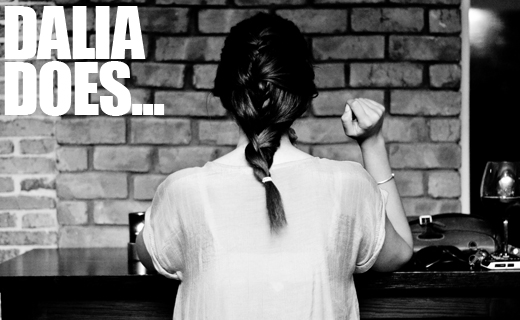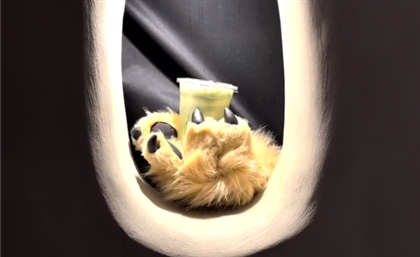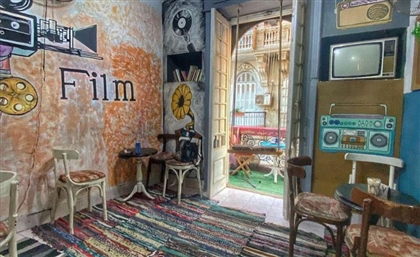Dalia Does…it in Context
It's all relative.

As a self-confessed grammar Nazi and someone who is unnaturally obsessed with words and language, I was shocked to find myself being re-educated in both English and Arabic when I first moved to Cairo three years ago. My London slang was of course the first to go in a city where everyone who spoke English learned it at the AUC and/or watching reruns of Friends. I lost my ever-so-subtle Cockney twinge almost immediately and slowed down my pace so less seasoned ears could keep up. I was yelled at by my grandmother for referring to a male friend as sa7by before realising that, spoken from a girl’s lips, it’s a term reserved for lovers; something you don’t want to talk to your grandmother about, whatever the vocabulary. I’d constantly disappoint street cleaners when their “kol sana wenty tayeba,” was only met with a smile and a return of good wishes as I stomped down the pavement. When I discovered, after 2 years of working together, that a colleague of mine was actually getting tea every time she said “I’m going to get coffee,” I quickly realised that context is everything. You see, we worked together at a glossy magazine and, as far as I remember, they only ever had coffee in The Devil Wears Prada. I could have argued over semantics with my colleague, my grandma and the few street sweepers that realised they had to spell it out for me, but context was on their side.
It took me a while before becoming a little more intuitive with conversations in Cairo, but it wasn’t until after the revolution that I began using the context of a situation to justify what I had to say about it. When the country pretty much shut down for two weeks in early 2011, I was bombarded with calls and messages from my friends overseas that went something like “OMG ARE YOU OK???? WHAT’S HAPPENING???? ARE YOU SCARED?!?!” and they’d be noticeably disheartened at my anti-climactic responses. I was OK, it was too early to tell exactly what was happening and I wasn’tscared. Yes, we were trapped between the TV and Tahrir, but I wasn’t in jail. Yes, there were helicopters buzzing overhead and gun shots were ringing in the air, but I was breathing. We had electricity, we had water and we even had bars and restaurants operating outside of curfew hours. I was fine, considering the context.

- Previous Article I Got Banged!
- Next Article THE SEVEN STAGES OF MORSI

























